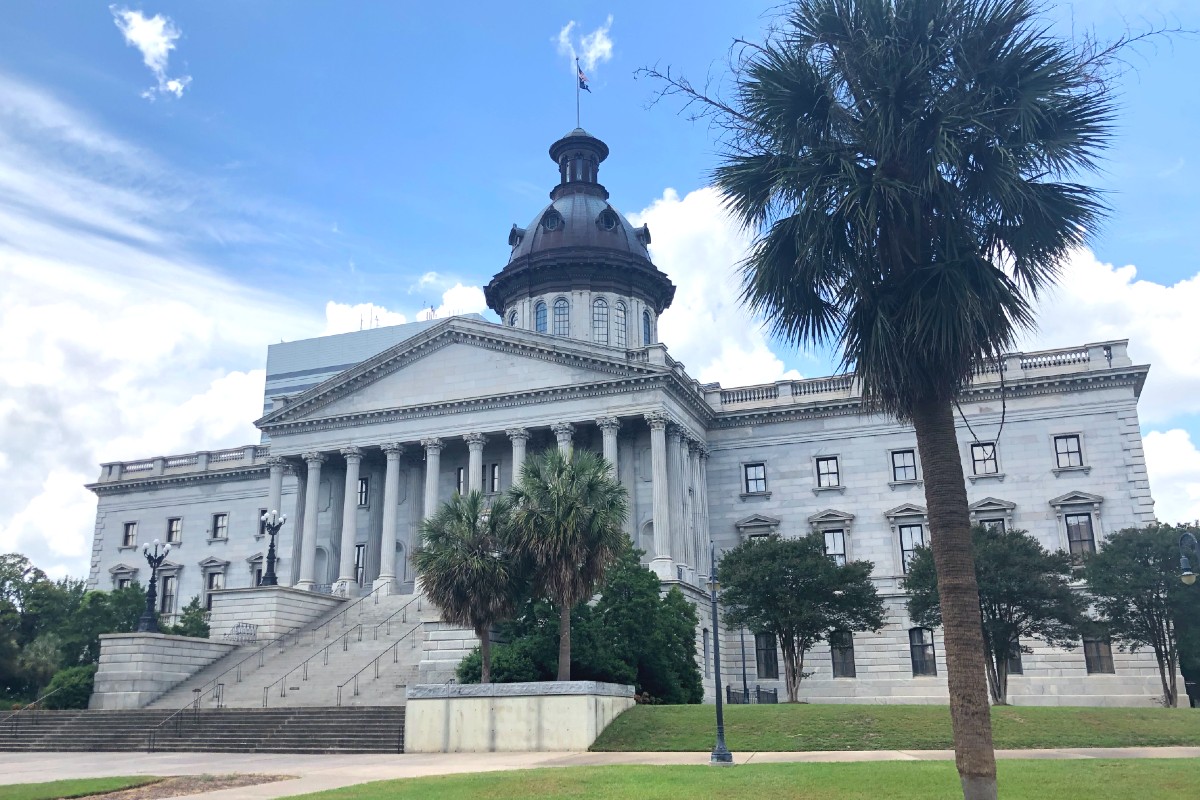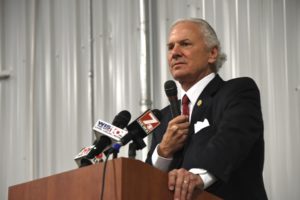
By Andy Brack, editor and publisher | South Carolina’s legislators, who went out of session Thursday without a finished budget for 2023-24, will return Tuesday for a special unlimited session after an executive order signed today by Gov. Henry McMaster.
The governor used the power of calling lawmakers back into session for the first time in about 20 years. McMaster said in a statement this morning that legislators did not finish their business.

“The General Assembly did not close the revolving door for criminals. It remains wide open,” he said. “They have not passed bond reform, and they have not enhanced the criminal penalties for illegal-gun possession. In addition, the General Assembly must complete the state budget, and they must pass legislation that stops our state from becoming a destination for abortions.”
It’s the last word of the quote that is the driver of what’s happening at the Statehouse.
In most years, lawmakers pass a “sine die” resolution to allow them to continue to meet for limited time and purposes – generally to deal with differences between the House and Senate budgets.
But this year, hard-right House lawmakers roiled plans for a Thursday end of the legislative year by again pushing for approval of abortion legislation that’s tougher than current law, which allows South Carolina women to consider abortion or other reproductive health choices up to 22 weeks after conception.
What that means is the House and Senate will continue to meet until they decide to stop meeting. They could eventually adjourn. Or like in some past years when they feuded with governors, they could just recess and come back anytime before the end of the year.
In other words, they don’t have to go out of session once they pass a budget or abortion legislation or anything from proposals on bond reform or hate crimes or education feeding programs. It could be an endless summer and fall of lawmaking.
One Statehouse insider likened what happened with today’s executive order to a baseball game. Games are supposed to end after nine innings. But if there’s a tie at the end of nine, then it could go 13 or 17 or 27 innings until someone wins. In terms of the legislature, that means it could stay in session until House or Senate Republicans want to stop meeting.
Basically because the House and Senate couldn’t agree on when to end the session since Republicans took control of both chambers in 2001, they subtly transferred power to the governor.
“It puts the governor in the game,” one observer said, noting that although McMaster couldn’t require lawmakers to talk about one issue or another, he had increased power to influence the legislative agenda.
Abortion debate fueled special session
The special session was made necessary after hard-right House legislators pushed their pet issue of division – abortion, which, in turn, clogged progress on the state budget. And without a state budget by June 30, state government could grind to a halt.
Last week, Statehouse Report was first to explain how anti-abortion lawmakers in the House, who have been pounding the legislative process since last year for a near-total abortion ban, were desperate to get something done tougher on abortion this year. Coincidentally, McMaster also wants tougher abortion laws to fulfill political promises made for years.
Over the weekend, they caved to a six-week ban passed earlier this year by the Senate. That measure, Senate Bill 474, passed out of a House committee this week, but didn’t make it across the finish line. If it passes the House, it will return to the Senate for further consideration. But changes could sour senators and leave everything up in the air.

Planned Parenthood’s Vicki Ringer called the special session extreme and said it would waste taxpayer money.
“Lawmakers are obsessed with controlling the decisions and bodies of women in this state while ignoring soaring rates of maternal and infant mortality and economic insecurity,” she said. “People are just trying to put food on the table, care for their families and live the life they want for themselves.
“We’re tired of the culture wars, and we certainly don’t want politicians interfering with our health care or telling doctors what to do. Legislators need to put a stop to these political antics now.”
In January, the S.C. Supreme Court struck down a six-week abortion ban. But the proposed legislation now under consideration is even tougher, Ringer said.
- 474’s six-week ban is more onerous than the abortion ban struck down by the S.C. Supreme Court in January, according to Planned Parenthood. Under the pending bill, women would only be allowed to obtain an abortion past the earliest stages of pregnancy under narrow circumstances, including
- Serious risk of substantial, irreversible impairment of a major bodily function to the pregnant person, or if performed to prevent their death;
- Diagnosis of a fatal fetal anomaly; or
- Certain cases of sexual assault only up to the 12th week of pregnancy and only if the doctor reports the assault to the sheriff in the county where the abortion is provided, potentially against the wishes of the patient.
- Have a comment? Send to feedback@statehousereport.com


